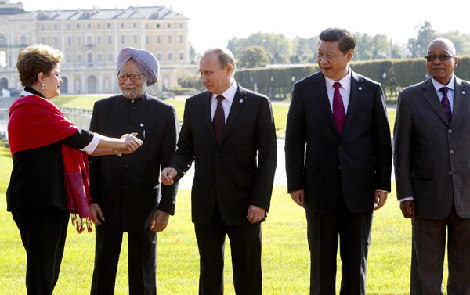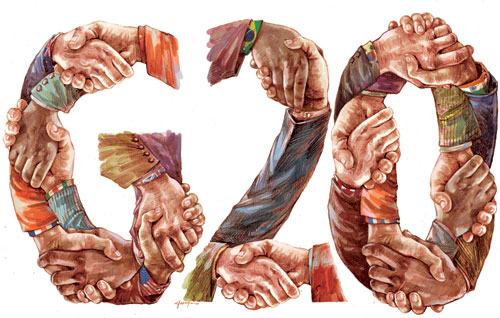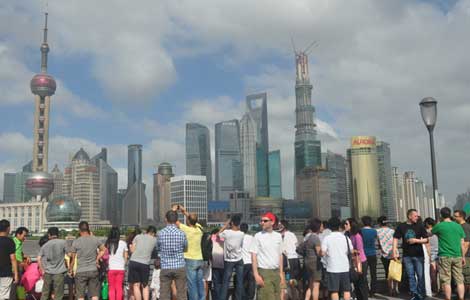China's financial worries not to induce crisis
Updated: 2013-09-06 16:40
(Xinhua)
|
||||||||
BEIJING -- Among those mongering gloom on China's economic outlook, some say that financial worries including shadow banking and local government debts are likely to bring down the world's second largest economy.
But facts have proven that this is not likely to happen.
Over the years, an increasing number of people making little gain on bank deposits have shifted to risky alternatives such as various "wealth management products," which gives rise to shadow banking.
It is true that the rise of the shadow-banking sector is an annoying sign for the economy because this kind of non-banking finance could create bank-type risks outside the constraints of bank regulations.
However, the market might have been over-anxious by estimating that the financial worries might trigger a full-blown crisis in China, whose growth slid to 7.5 percent in the April-June period, a rate much lower than the two-digit growth recorded in the past decades.
The argument, first of all, is proven by recent improvements. In an obvious sign of decline, the shadow-banking sector's share of banking assets was reduced to only 13 percent in July, compared with the much higher 54 percent in the first quarter of this year.
The improvement is partly attributed to efforts made by the Chinese authorities to strictly regulate most trust and wealth management products and control the risks of shadow banking.
In a fresh effort to beef up financial supervision, the Chinese authorities have decided to coordinate financial supervision by approving a mechanism, headed by the People's Bank of China and involving regulatory bodies from the banking, securities, insurance and foreign exchange sectors.
Another factor that contributes to the shrinking of the shadow-banking sector is the decline of the Chinese enterprises' demand for high-rate loans.
Moreover, to reform its financial sector, Beijing has taken a package of steps to liberalize the financial market, among which, China's central bank announced on June 19 to lift controls on bank lending rates, as its governor Zhou Xiaochuan has indicated the bank is ready to free long-awaited deposit interest rates.
The moves, a clear signal of the government's determination to push forward market-oriented reforms, are likely to result in competition between banks, which would lead the better ones to healthy margins and help them win back market share from shadow banking.
Despite the slowdown, Beijing has refrained from initiating a massive stimulus program to lift the economy and allow leeway to proceed with structural reforms for the long-term good.
The ongoing Group of 20 summit came just in time to provide China a good platform to expound its blueprint to bolster the world's confidence in its economy, which is important not only to China, but also to the world at large.
Pain is unavoidable as China breaks away from the old growth model, but the Chinese economy has not broken the bottom line.

 Top 10 countries for plastic surgery
Top 10 countries for plastic surgery
 Holder Murray stunned by Wawrinka
Holder Murray stunned by Wawrinka
 China, Russia a step closer on gas supply
China, Russia a step closer on gas supply
 18-year-old panda conceives triplets
18-year-old panda conceives triplets
 Testing times for G20 leaders
Testing times for G20 leaders Homemade choppers make aerobatic stunt debut
Homemade choppers make aerobatic stunt debut
 World-class partners bring NBA global games to Chinese fans
World-class partners bring NBA global games to Chinese fans
 Shanghai's visa-free policy lifts tourism
Shanghai's visa-free policy lifts tourism
Most Viewed
Editor's Picks

|

|

|

|

|

|
Today's Top News
Xi hails progress in ties as he meets Obama
MFA Lab supports Chinese filmmakers
Beijing's new product briefing a first for Apple
Renminbi moves into the top 10
Trending news across China
US services eye Chinese market
China, Russia a step closer on gas supply
Brazil asks for apology from US on spying
US Weekly

|

|





